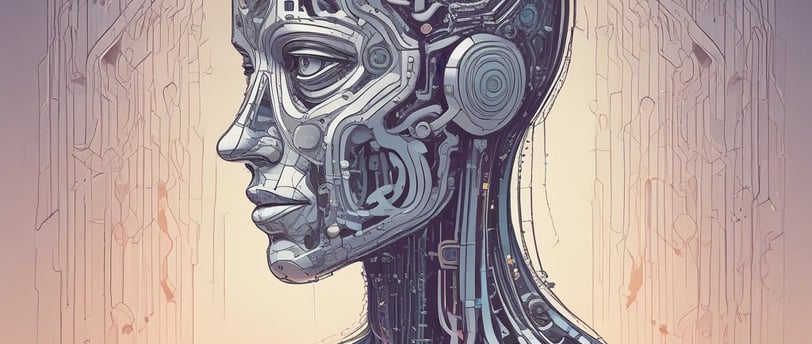How AI is Transforming Project Management: Trends for 2025
Artificial Intelligence is no longer a futuristic idea—it's reshaping how projects are scoped, executed, and evaluated right now. In this post, we explore the top AI-driven trends that will define project management in 2025, from predictive scheduling and automated risk analysis to smarter resource allocation. Discover real use cases, tool recommendations, and how you can start integrating AI into your workflows—no technical background required. Whether you're leading complex programs or just managing a growing portfolio, this article will help you stay ahead of the curve.
Shadit Murargy
5/30/20252 min read


How AI Is Transforming Project Management: Trends for 2025
By SIX Projects Consulting
Project management is at a turning point. With tighter deadlines, increasing complexity, and pressure to deliver more with less, project managers (PMs) need smarter tools and sharper foresight. In 2025, Artificial Intelligence (AI) is not just an enhancement—it’s a necessity.
From forecasting risks to streamlining workflows, AI is transforming how teams plan, execute, and deliver value. In this article, we unpack the top AI trends shaping the future of project management and show how you can start leveraging them—today.
1. Predictive Project Planning
Traditional planning often relies on historical data and intuition. AI-powered planning tools can now analyze millions of data points to predict delays, budget overruns, and bottlenecks—before they happen.
Use Case: Tools like Microsoft Project with Copilot or Forecast.ai can suggest optimized timelines, adjust schedules in real-time, and alert PMs to potential deviations based on team velocity or resource constraints.
2. Intelligent Resource Allocation
No more guesswork. AI algorithms help assign the right people to the right tasks based on skills, availability, past performance, and even burnout signals.
Impact: This not only increases productivity but also promotes team well-being—two outcomes rarely aligned in traditional models.
3. Automated Risk Management
Instead of manually reviewing risk registers, AI tools can flag hidden risks by analyzing communication patterns, task delays, and dependencies across platforms.
Bonus Insight: Some platforms even auto-generate mitigation plans or recommend escalation pathways based on organizational thresholds.
4. Smarter Communication and Reporting
AI chatbots and voice assistants are now integrated into PM tools like ClickUp and Asana. They can update stakeholders, summarize meetings, or generate status reports—instantly.
Why It Matters: Time spent on reporting is time away from solving problems. AI frees PMs to focus on decision-making, not documentation.
5. Decision Support with Generative AI
Beyond automation, Generative AI (like ChatGPT) is being used to draft project charters, write test cases, analyze stakeholder interests, and even simulate project scenarios for strategic decision-making.
Example Prompt:
“Draft a stakeholder communication plan for a $1M health project with a high-risk component in rural areas.”
↳ Output: A detailed, contextual plan within seconds.
6. Continuous Learning and Retrospective Intelligence
AI can now analyze retrospectives across projects, identify recurring patterns (e.g., missed deadlines during testing), and suggest improvements for future sprints—turning reflection into proactive strategy.
The Future Is Hybrid
AI won't replace project managers—but PMs who use AI will outperform those who don’t. The future lies in a hybrid model where human intuition is enhanced by machine intelligence. As a project leader, your role will evolve from task supervision to strategic orchestration.
Ready to Embrace AI in Your Projects?
At SIX Projects Consulting, we help businesses and teams integrate AI into their project management processes—whether you’re just starting or ready to scale.

